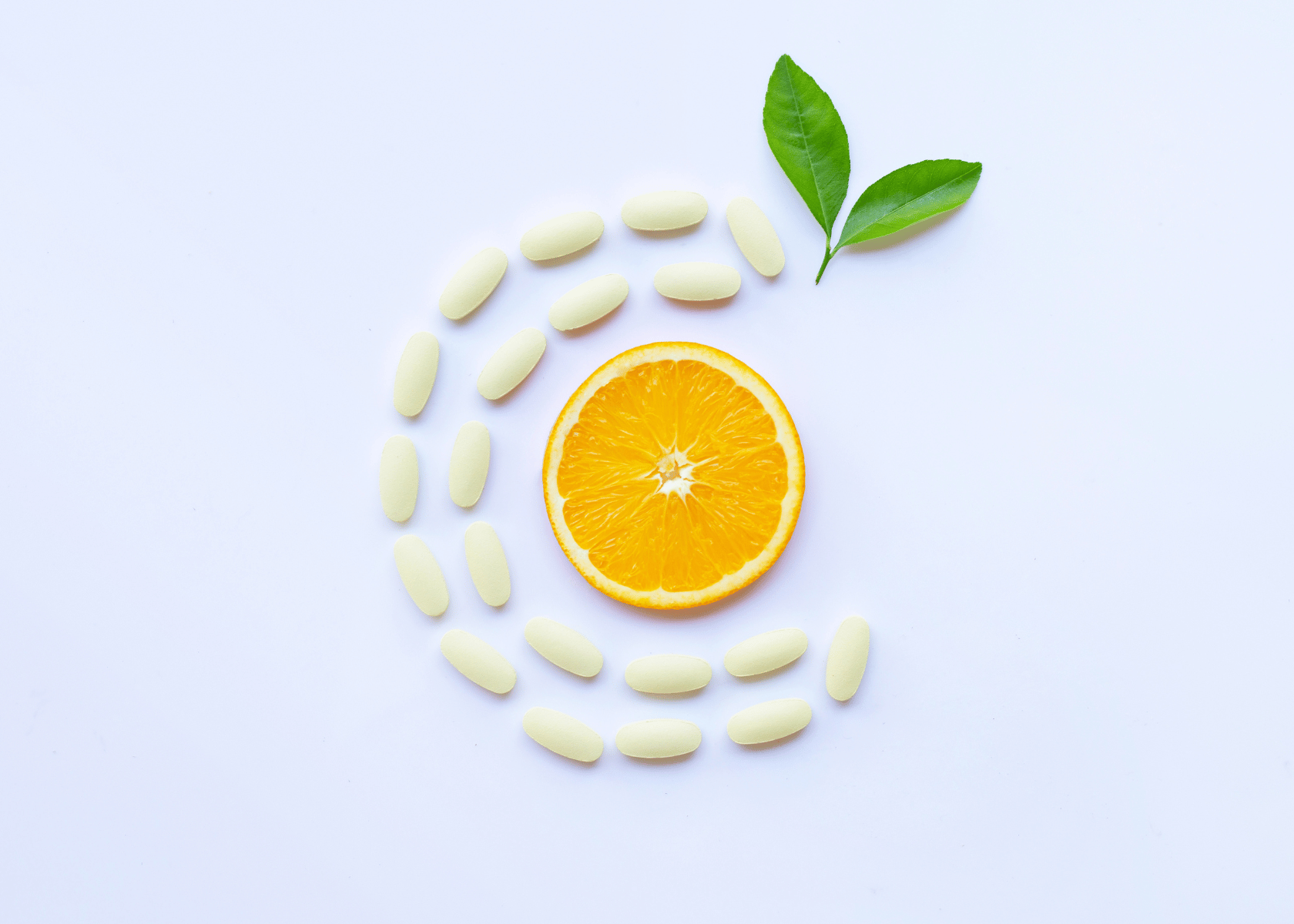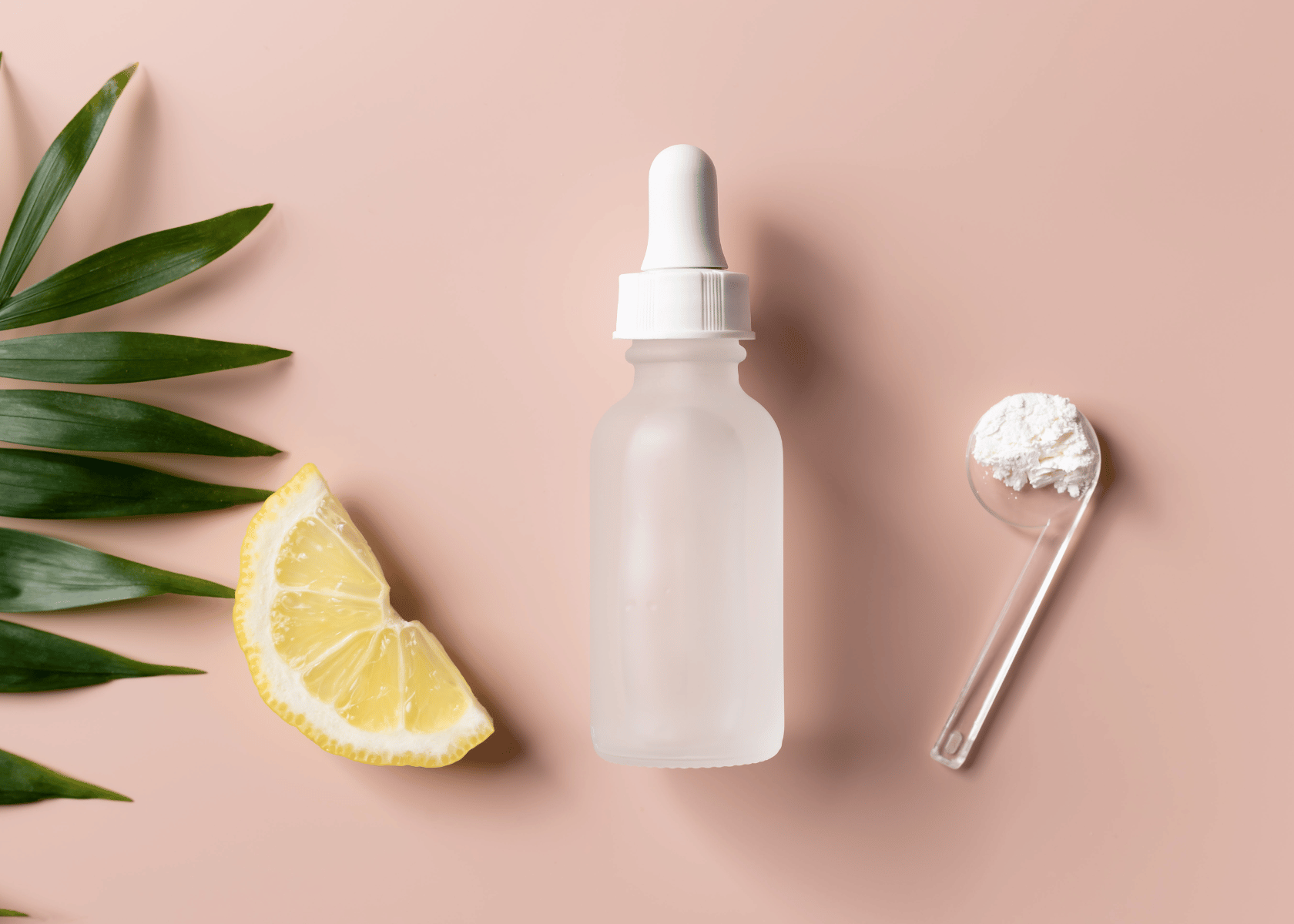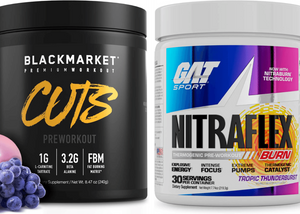Dealing with the worry of high homocysteine levels is an everyday norm for many people. It's a fact that elevated homocysteine concentrations in the blood can lead to various health risks.
This blog post will explore the role Vitamin C plays in lowering these levels, offering a possible solution to your concerns. Join us as we dive into this crucial topic and learn how to safeguard your health one vitamin at a time!
Key Takeaways
- Vitamin C has been found to lower homocysteine levels in the body.
- Co-supplementation with vitamin C and folic acid can activate the folate-mediated one-carbon cycle, which helps regulate homocysteine metabolism.
- Lowering homocysteine levels with vitamin C supplementation can reduce the risk of cardiovascular disease and other health conditions associated with high homocysteine levels.
What is Homocysteine?
Homocysteine is an amino acid produced during the metabolism of methionine, playing a crucial role in several biochemical processes in the body.
Role of Folic Acid
Folic acid plays a vital role in managing homocysteine levels in the blood. It aids in the activation of the folate-mediated one-carbon cycle, which is essential for homocysteine metabolism.
This process helps convert harmful, high levels of homocysteine into beneficial amino acids required by your body. By taking daily supplements of folic acid, along with vitamins B6 and B12, you can effectively lower these homocysteine concentrations.
Through such nutritional strategies, elevated risks associated with high homocysteine levels like Alzheimer's disease or other health conditions can be mitigated efficiently.
Does Vitamin C Lower Homocysteine?

Vitamin C has been found to have a potential lowering effect on homocysteine, a compound associated with increased cardiovascular disease risk. Read more to discover the benefits of vitamin C and its impact on homocysteine levels.
Effect of Vitamin C on Homocysteine
Vitamin C has shown potential in lowering homocysteine levels in the body. Co-supplementation with vitamin C and folic acid can activate the folate-mediated one-carbon cycle, which plays a crucial role in regulating homocysteine metabolism.
This can help reduce elevated levels of homocysteine and promote cardiovascular health. Additionally, vitamin C has antioxidant properties that may contribute to the reduction of oxidative stress, which is associated with high homocysteine levels.
Taking vitamin C supplements or consuming foods rich in this nutrient can be a natural way to lower homocysteine levels and support overall well-being.
Benefits of Vitamin C
Vitamin C offers improved health benefits and reduced risk of cardiovascular disease.
Improved Health Benefits
Vitamin C offers a range of improved health benefits when it comes to lowering homocysteine levels. Co-supplementation with folic acid and vitamin C activates the folate-mediated one-carbon cycle, which effectively reduces homocysteine concentrations in the blood.
Additionally, taking daily supplements of folic acid, vitamin B6, and vitamin B12 can lower homocysteine levels and improve cardiovascular health. These vitamins play a crucial role in reducing homocysteine, a known risk factor for conditions like Alzheimer's disease.
By incorporating these essential nutrients into your diet or through supplementation, you can reap the antioxidant properties of vitamin C while actively working to lower your homocysteine levels and improve your overall well-being.
Reduced risk of cardiovascular disease
Supplementing with vitamin C has been shown to reduce the risk of cardiovascular disease. This is due to its ability to lower homocysteine levels in the blood.
Homocysteine is a compound that, when present in high amounts, can damage the lining of blood vessels and increase the risk of heart disease and stroke.
By reducing homocysteine levels, vitamin C helps maintain the health of the cardiovascular system and reduces the risk of these serious conditions.
Including foods rich in vitamin C or taking supplements can be beneficial for maintaining cardiovascular health and preventing diseases related to high homocysteine levels.
Dietary Sources of Vitamin C

Fruits, such as oranges, strawberries, and kiwi, are rich sources of vitamin C.
Fruits
Fruits are a great source of vitamin C, which plays an important role in lowering homocysteine levels.
Citrus fruits like oranges and grapefruits, as well as berries like strawberries and raspberries, are particularly rich in this essential nutrient.
By incorporating fruits into your diet, you can naturally increase your vitamin C intake and help regulate the one-carbon cycle involved in homocysteine metabolism.
This can contribute to reducing the risk of high homocysteine levels and improving cardiovascular health.
So, make sure to include a variety of fruits in your daily meals for their nutritional benefits and antioxidant activity.
Vegetables
Vegetables are an excellent source of vitamin C, which can help lower homocysteine levels. By incorporating a variety of vegetables into your diet, such as broccoli, peppers, and kale, you can increase your intake of this important vitamin.
Vitamin C works alongside other nutrients like folic acid to activate the folate-mediated one-carbon cycle in the body, leading to reduced levels of homocysteine. So, make sure to include plenty of vegetables in your meals for their nutritional benefits and potential impact on cardiovascular health.
Supplements
Supplements play a crucial role in lowering homocysteine levels and improving cardiovascular health.
Co-supplementation with folic acid and vitamin C has been found to activate the folate-mediated one-carbon cycle, effectively reducing plasma levels of homocysteine.
Daily intake of supplements containing folic acid, vitamin B6, and vitamin B12 can also successfully lower homocysteine concentrations in the blood.
Additionally, taking combined vitamin supplements has shown promising results in reducing homocysteine levels in patients with venous thrombosis and even in healthy individuals.
These findings highlight the importance of incorporating supplements as part of a holistic approach to lowering homocysteine levels for better overall health.
Vitamin C supplementation is particularly noteworthy due to its ability to reverse the acute effects of hyperhomocysteinemia.
By balancing oxidative stress reduction and regulating the one-carbon cycle, vitamin C promotes optimal metabolism of homocysteine.
This essential nutrient not only helps reduce high homocysteine levels but also provides additional benefits such as antioxidant activity that supports overall cardiovascular health.
Frequently Asked Questions

1. Does Vitamin C supplementation lower homocysteine levels?
Vitamin C supplementation may contribute to the reduction of blood homocysteine, a cardiac risk factor.
2. How does vitamin C interact with other vitamins in regulating homocysteine?
The interaction of Vitamin C and B vitamins, including cobalamin and folic acid, can regulate the one-carbon cycle and potentially lower hyperhomocysteinemia risk.
3. Can mega-doses of Vitamin C influence tumor necrosis factor-alpha expression?
While more research is needed, some studies indicate that megadoses of Vitamin C might affect tumor necrosis factor-alpha expression related to the cardiovascular disease process.
4. Are there natural ways to lower homocysteine levels apart from using supplements?
Yes! Nutritional factors play a vital role in managing homocysteine reduction; maintaining a balanced diet alongside regular exercise can help manage healthy levels.
5. Can Folic Acid supplementation also impact Homocysteine Levels?
Absolutely! Folic acid supplementation helps manage the folate-mediated one-carbon cycle that directly impacts blood homocysteine so it's an essential part for Cardiovascular disease prevention.
Conclusion
Supplementation with vitamin C, along with folic acid, can effectively lower homocysteine levels in the blood. This has potential benefits for cardiovascular health and reducing the risk of various health conditions associated with high homocysteine levels.
Including dietary sources of vitamin C and considering supplementation can be natural ways to maintain optimal homocysteine levels.









